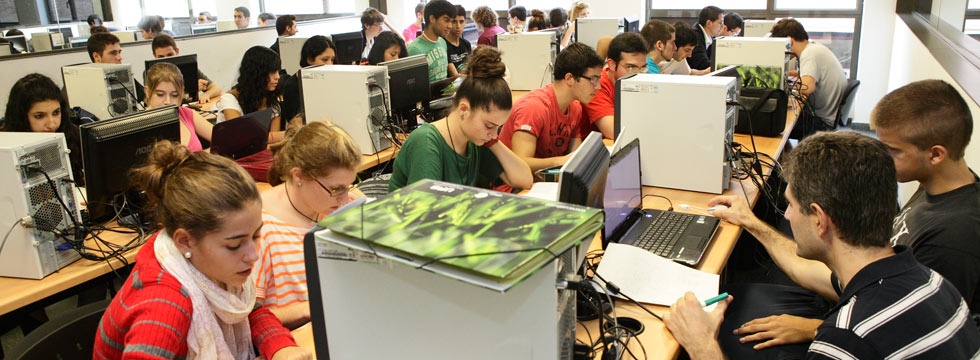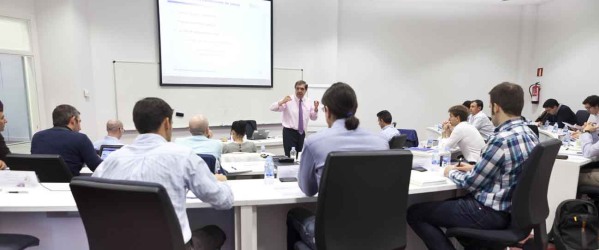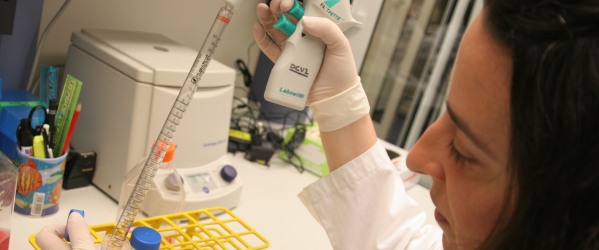Assured quality
If you choose Spain to further your studies, we assure you that quality is guaranteed. Regarding university studies, you must know that the university in Spain has a long recognised tradition, as the first university institutions date back to the 13th century.
According to the Ministry of Education, Culture and Sport, there were 83 universities in Spain at the beginning of the 2014-2015 year. As you can see, there is a lot to offer all over the country – there were 243 university campuses accounted for in different municipalities.
Spain is the only Spanish speaking country to have adapted its curriculum to the European Higher Education Area (EHEA), since it was included in its educational framework in 2007.
Thanks partly to these data, the number of university students has risen by 26.8% over the last 20 years. Foreign students accounted for 4.9% of students in the 2013-2014 academic year.
If you really want to come to Spain to further your studies, age should not be an obstacle, because the number of students over 30 in Spain is gradually increasing.
There are thousands of official undergraduate (“grado”) and post-graduate courses to choose from (in different fields) and a teaching system that guarantees a balance between theory and practice (there are often internships in companies). You can also choose a double degree, which combines two different courses. This is highly valued in the labour market. You will also be able to combine your university studies with a part-time job and enjoy the amount of cultural activities that are organised (guided tours, dance classes, reading clubs, etc.)
In Spain there is also a national foundation that contributes to the quality of the higher education system by means of the evaluation, certification and accreditation of the teaching, lecturers and institutions. It is the National Agency of Assessment, Quality and Certification (ANECA). This agency carries out several programmes such as VERIFY (which assesses the curriculum proposals designed in accordance with the European Higher Education Area) and AUDIT (which guides universities in the design of their own quality systems). As you can see, this proves that quality is guaranteed in your studies.
Which university should you choose?
Spain wants its universities to be ever better prepared academically, more efficient and more internationalised. To this end, the US2015 (University Strategy) has been launched and the Campus of International Excellence (CEI) programme developed, with the aim of helping Spanish campuses to win recognition for their excellent levels of teaching, research and innovation.
Since the International Campus of Excellence Programme was launched in 2008, Spain has invested over €590 million and 32 projects have been selected over the three programmes (2009, 2010, 2011).
This information might help you to choose your university.
You will find more information on this programme and new selected projects since it was started up at:
http://www.mecd.gob.es/campus-excelencia/
There are also more and more universities with agreements with Science and Technology Parks to carry out internships, and many offer very interesting and prestigious Summer Courses.
What facilities will you find?
Most of the universities have libraries, laboratories and workshops, computer rooms, audiovisual rooms, work rooms, auditoriums, sports centres, etc
Programmes for students
Spain also promotes important initiatives like the development of such programmes as FARO (offering internships for final-year university students in Spanish companies and multi-national companies in Asia, Oceania, Europe, USA and Canada) and ARGO (internships for graduates in companies as above) and the International Educational Opportunities Exhibition (AULA), which takes place every year in Madrid's trade fair and exhibition centre, IFEMA.
All the information you need at:
http://www.becasfaro.es/home.php
http://www.becasargo.es/
http://www.ifema.es/ferias/aula/default.html
Higher Education beyond university
If you are interested in Higher Education in general, as well as undergraduate courses in Spain, there are advanced level artistic courses, advanced vocational training, professional plastic arts and design courses, and professional sports courses.
You can find more information at:
http://www.mecd.gob.es/educacion-mecd/areas-educacion/sistema-educativo/ensenanzas/educacion-superior.html
There are also more and more institutions that offer post-graduate courses and highly-specialised life-long learning courses (promoted by important international organisations such as the EU, UN, UNESCO, OECD, etc.). So if you are interested in Dramatic Arts, Foreign Trade, Hotel & Catering, etc., Spain is also a good option for you.
Spain's Business Schools also have international academic prestige. In fact, two Spanish Business Schools are in the top five of the 80 best business schools in Europe, according to the ranking prepared in 2014 by the prestigious Financial Times publication: the IE University school was in 3rd place and the Universitat Ramon Llull, ESADE institution was 4th. Moreover, IESE, the Navarre University (UNAV) centre, was in 7th place, the EADA Business School was 24th and ESCP Europe (a joint centre in Spain, France, Germany, Italy and the UK) was 12th.
Learning Spanish
Are you coming exclusively to learn Spanish?
You can do so on a course at a Spanish university, at their different Language Schools or at any of the centres accredited by the Cervantes Institute, a world-renowned public institution present in 90 cities and 43 countries. In fact, it is in charge of issuing the Diplomas in Spanish as a Foreign Language (DELE) and organising the exams to gain this diploma.
More information: http://www.cervantes.es/default.htm
Spain provides a benchmark for education, and high quality studies are guaranteed. Don’t think twice. Study in Spain.
Links to International Student Associations
AEGEE (European students' forum)
http://www.aegee.org/
BEST (Board of European Students of Technology)
http://www.best.eu.org/index.jsp
IAESTE (International Association for the Exchange of Students for Technical Experience)
http://www.iaeste.es/








